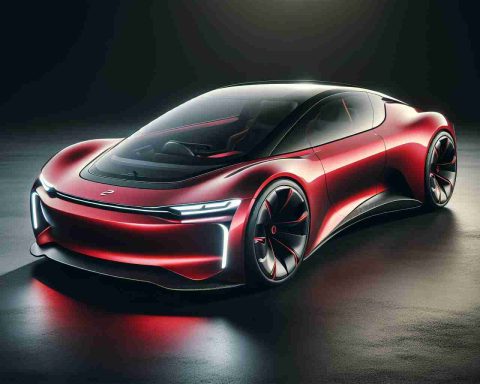- FREYR Battery has abandoned plans for its $2.6 billion battery factory in Georgia due to economic challenges.
- Over 700 jobs were expected from the factory, highlighting its significance to local employment.
- Factors influencing the decision include rising interest rates, falling battery prices, and changes in leadership.
- The company sold the 368-acre factory site for $50 million, realizing proceeds of $22.5 million after prior expenses.
- FREYR is shifting its focus to solar energy, acquiring a large factory from Trina Solar in Texas.
- The company’s headquarters is relocating to Austin, Texas, signaling a strategic pivot in their business model.
- This transition underscores the importance of adaptability in the evolving renewable energy market.
In a surprising turn of events, FREYR Battery has scrapped its ambitious plans for a $2.6 billion battery factory, dubbed “Giga America,” in Coweta County, Georgia. The anticipated facility was set to create over 700 jobs, but shifting economic tides have led the company to make a decisive pivot.
FREYR, which relocated from Norway to Georgia under the enticing benefits of the Biden administration’s Inflation Reduction Act, recently revealed that a combination of rising interest rates, declining battery prices, and leadership changes prompted a recalibration of their strategic goals. In a dramatic move, they announced the sale of the factory site—a sprawling 368 acres—to an undisclosed buyer for $50 million, with net proceeds expected to reach $22.5 million after addressing prior state grants.
Just a few months ago, discussions with investors highlighted intense competition from affordable Chinese battery manufacturers, forcing the company to rethink its focus. In a bold maneuver, FREYR has now shifted gears to embrace solar power, completing the acquisition of Trina Solar’s massive factory in Texas, thus cementing its transformation from a battery maker to a solar powerhouse.
With the company also moving its corporate headquarters to Austin, the strategic realignment marks a significant departure from its original plans while signaling a robust commitment to renewable energy.
As FREYR charts new paths in the renewable sector, the key takeaway is clear: adaptability in an evolving market landscape can shape the future of energy solutions. Are you ready to harness the sun? Explore your solar options today!
FREYR Battery’s Bold Shift: From Battery Production to Solar Innovation!
In a shocking decision, FREYR Battery has abandoned its plans to build a $2.6 billion battery factory, known as “Giga America,” in Coweta County, Georgia. Initially aimed at generating over 700 jobs, this venture has been deemed unsustainable in light of changing economic circumstances, leading the company to pivot towards solar energy.
The decision to scrap the battery factory comes amid rising interest rates, plummeting battery prices, and leadership changes within the organization. After selling the 368-acre factory site for $50 million—netting $22.5 million after settling prior state grants—FREYR has strategically aligned itself in a different direction.
# Key Insights and Trends
– Market Analysis: The decision reflects a broader trend where traditional battery manufacturers are facing fierce competition from cheaper alternatives, particularly from Chinese companies. This dynamic necessitates a reevaluation of business models.
– Solar Energy Revolution: FREYR’s acquisition of Trina Solar’s factory in Texas underscores a shift towards solar solutions. This move not only diversifies their energy portfolio but also aligns with global trends emphasizing renewable energy sources.
– Strategic Headquarters Move: Relocating its headquarters to Austin signifies FREYR’s commitment to innovation and collaboration within a thriving tech and energy hub, potentially attracting talent and investment.
# Pros and Cons of FREYR’s Decision
Pros:
– Adapting to market conditions may ensure long-term viability and profitability.
– Investment in solar power could lead to new job creation and a sustainable future.
– Aligning with government incentives for renewable energy can provide financial advantages.
Cons:
– Abandoning the battery factory may lead to lost job opportunities for the local workforce.
– Potential backlash from investors expecting returns from the original battery production plans.
# Limitations
FREYR’s shift entails risks, including:
– Dependence on solar market conditions, which can be volatile.
– The need to compete with established solar manufacturers.
# Sustainability Aspects
Transitioning to solar power echoes a commitment to sustainability, reducing reliance on fossil fuels and decreasing carbon footprints. This move is not only timely but essential in combating climate change.
Frequently Asked Questions
1. Why did FREYR decide to abandon the Giga America project?
The decision was influenced by rising interest rates, decreasing battery prices, and competitive pressures, prompting a strategic pivot towards solar energy.
2. What does FREYR’s acquisition of Trina Solar mean for the company?
Acquiring Trina Solar’s factory positions FREYR as a significant player in the solar industry, enhancing their renewable energy portfolio and creating new opportunities.
3. How will this shift impact employment in Georgia?
While the battery factory would have created over 700 jobs, the elimination of this project may lead to local job losses. However, the move towards solar may eventually lead to new employment opportunities in different areas of renewable energy.
For more information about FREYR’s strategic moves in the energy sector, visit FREYR Battery.












